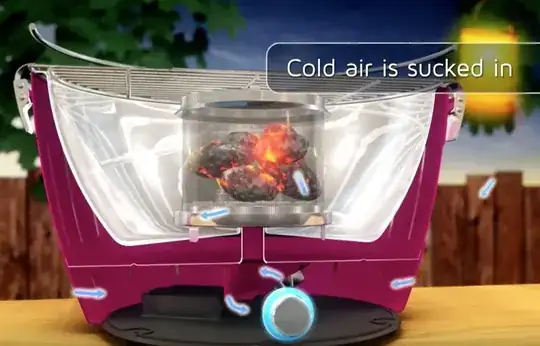On my quest to balcony charcoal grilling, without bothering my neighbours, I have researched many solutions.
I am now, pretty sure, that I can limit the smoke of the actual burning by using the right coal (like cocos coal) and lighting it the right way.
However, the main problem appears to be the fat on coal dripping, which results in a lot of smoke, no matter the coal type.
I have stumbled upon a "smokeless charcoal grill", which is specifically designed to be smokeless and it looks like this:
Source: https://www.youtube.com/watch?v=cmVlfXxh-x0
From what I can tell, this grill hides the coal and works by indirectly heating the food, preventing fat dripping on the coal.
While this makes sense, this also limits the flavors, which develop by the dripping.
I wonder if there is no fat on coal dripping, does this even have an advantage over using a gas or electric grill?
Would the food still get some smokey flavour from the coal? Or is this actually the same as gas or electric flavorwise?
